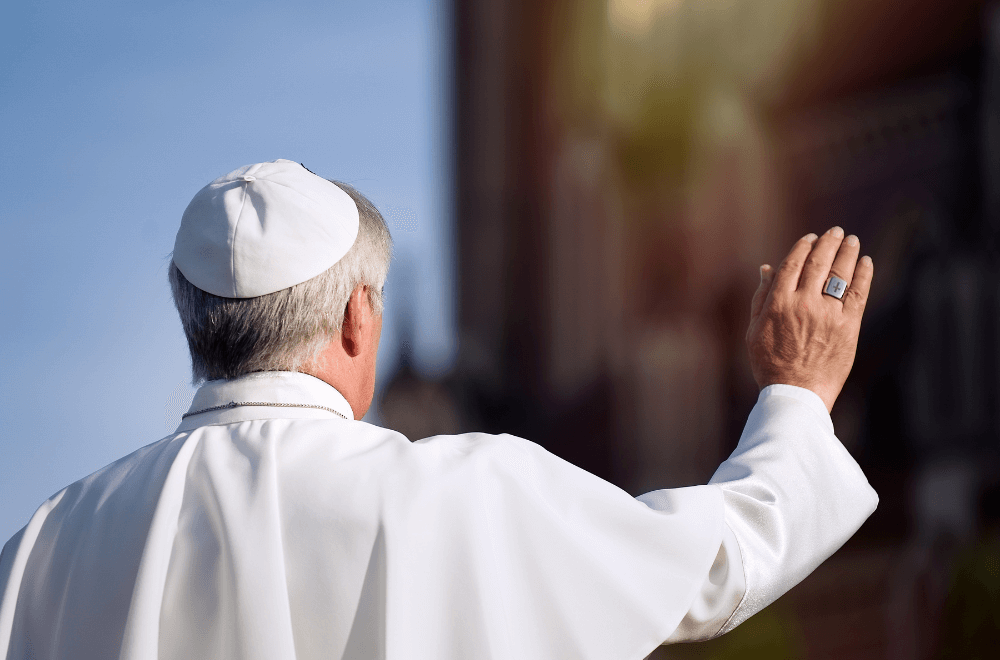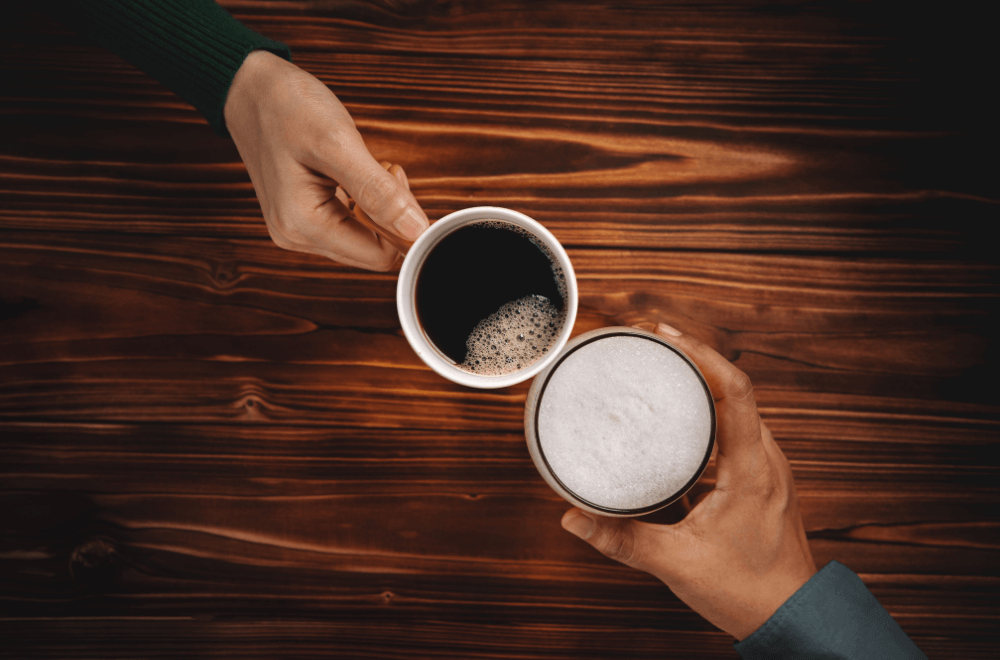Given the effects of caffeine, you might have wondered, “was coffee ever illegal?” Coffee has been banned more than once throughout history. Let’s learn more.

Coffee is one of the essential components of modern life. However, with the ubiquity of coffee shops like Starbucks and Dunkin Donuts, it’s easy to forget just how far back coffee history goes. So you might have wondered, was coffee ever illegal?
Coffee has been illegal on more than one occasion throughout history in several locations, from Mecca to the United Kingdom. Let’s learn more about the history of coffee.
A Brief History Of Coffee
Before we dive into the various instances of coffee bans and what caused them, it’s important to know how coffee has shaped human history since its inception. Overall, there’s a reason why these bans never last and why people just can’t get enough of the brown stuff.
Coffee production started in the Middle East in the Arabian Peninsula, which is now home to Saudi Arabia, Egypt, Syria, Yemen, and Turkey. However, the first legend of coffee beans dates back to ancient times in Ethiopia.
The story goes that a goat herder discovered that when his goats ate the fruit of a specific plant, they wouldn’t go to sleep that night. After telling the local abbot, the abbot made a brewed concoction from the berries, and coffee was born. Pretty much immediately, coffee houses sprang up, and drinking coffee was a social affair.
By the 17th century, coffee made its way to Europe, which made the Catholic Church uneasy. Because coffee shops were harboring new ideas and discourse, the Church felt they could be a threat to their power. While coffee bans existed in the 1600s, the beverage was too popular to go away for very long.
In the United States, coffee didn’t really catch on until the late 1700s, when Americans started revolting against English taxes. Because the British started taxing tea, Americans switched to coffee and never went back. The first place coffee arrived in the US was in New Amsterdam, which is now known as New York.
From there, coffee beans were planted and cultivated in countries around the world, and the drink has solidified itself as one of the cornerstones of modern society. Although coffee never built any monuments or won any wars, it gave people the motivation and energy to do so.
Instances Where Coffee Was Illegal (And Why)
Historically, when something comes along and changes the status quo, those in charge get frightened and try to ban or discourage that activity or product. Because coffee houses were centers of trading ideas, the ruling class always saw them as potential threats. From the Catholic Church to the King of Prussia, here’s a rundown of the times when it was made illegal to enjoy a cup of coffee.
Mecca Bans Coffee For The First Time
- When: Circa 1511
- Who Banned It: The Governor of Mecca
Mecca is the holiest of Muslim cities, so it gets tons of visitors every year who make the pilgrimage to pray to God and be in a spot where the prophet Muhammed was born. As a spiritual, cultural, and political site, Mecca was where many ideas and topics were discussed.
Many of these discussions happened in coffee houses throughout the city, and it was where people and visitors would air their grievances and talk about how to solve their problems. In 1511, shortly after the governor, Khair-Beg rose to power, he discovered that many of his constituents were bad-mouthing him at coffee shops.
Fearing that this open outcry could lead to an organized revolution, the governor stepped in and banned coffee and coffee houses within the city. To justify this move, Khair-Beg stated that coffee was against the Islamic religion and sinful.
Ironically, Sufi Sect followers would drink coffee at night, so they would have the energy to recite the numerous prayers. So, if anything, coffee was actually beneficial for Muslims, although technically harmful for the governor.
Italy Deems Coffee Satanic – Until The Pope Tried It
- When: 16th Century
- Who Banned It: Catholic Clergymen
It’s hard to believe now, but the effects of coffee consumption were originally thought to be the work of evil spirits or demons. So, if someone drank too much coffee at once, their erratic and energized behavior might be considered akin to possession, meaning that clergymen of the day would have to perform an exorcism.
Such was the case in Italy during the 16th century. Many religious leaders believed that coffee had too many negative outcomes, especially when it came to changing an individual’s behavior. While coffee is not as disruptive as alcohol, its effects were more than sufficient for the Church to move to ban the substance.

At the time, Pope Clement VIII was in charge of the Catholic Church, and he was the one who would decide coffee’s fate. However, to pass an impartial and fair judgment, the Pope would have to sample the beverage first.
Unfortunately for the clergymen (and fortunately for everyone else), the Pope actually enjoyed sipping on a cup of coffee. So, rather than ban the beverage, Clement decreed that coffee wasn’t going anywhere. Eventually, the church recognized coffee’s positive impact on the world and didn’t change their minds afterward.
In fact, to ensure coffee’s place in history, the Pope blessed the beverage so that average Catholics could enjoy it without worrying about whether their soul would go to Hell as a result. You might also be interested in our Moka pot history guide.
No Coffee Houses In Constantinople
- When: 1633
- Who Banned It: Sultan Murad IV
Typically, a coffee ban doesn’t last very long because the beverage is so popular among the masses that they would riot in the streets if anyone tried to take it away. However, the one group that came close to succeeding was the Ottoman Empire.
In 1633, Sultan Murad IV rose to power and decided that coffee shops could undermine his rule. He was particularly worried about the shops in Istanbul, as it was the location of the seat of government, and those ideas could spread to other parts of the empire.
The Ottoman ban lasted for almost a century, thanks in part to a brutal system of retribution. For a first-time offender, the punishment was a beating. If anyone was caught drinking coffee or having coffee on them a second time, they would be sewn into a leather bag and tossed into the Bosporus.
Although these punishments were severe, civilians within the empire continued to drink coffee, albeit in secret. Plus, by the 18th century, coffee had become so widespread outside of the Ottoman Empire that it was virtually impossible to contain its spread. As with every other civilization, coffee culture was too ingrained into the public consciousness, so it couldn’t be rooted out with a few beatings.
No Coffee For Women In Great Britain
- When: Late 17th Century
- Who Banned It: King Charles II
Although rebellious discussions were being had at coffee shops by everyone, the English monarchy in the late 17th century decided that having women drink coffee was too much to handle. As you may imagine, women had it pretty bad during this century, so they were far more likely to discuss plans on how to change the system.
King Charles II attempted to ban coffee several times throughout the 1600s, but nothing had the intended effect. However, there was one crucial side effect of these bans – tea became more popular among women, and that’s why so many British people drink tea instead of coffee in modern times.
Sweden Viewed Coffee As Poison
- When: 1746
- Who Banned It: King Gustav III
The 18th century was a tumultuous time for monarchs across Europe and the Middle East. The average commoner was getting fed up with royal rulers, and coffee shops were an excellent place to discuss how to create change and reform the system.
Throughout Europe, many monarchies tried unsuccessfully to ban coffee and all the rebellious thoughts that came with it. While there were numerous bans throughout the 1700s and early 1800s (including by the French King Louis XV). Some of these bans lasted a week or so, while others had a bit more stamina.
In Sweden, part of the anti-coffee fervor was fueled by the belief that it was poisonous and caused people to slowly kill themselves. To prove this fact, King Gustav III ordered physicians to give coffee to prison inmates and document their progress from healthy to dying.
Obviously, coffee consumption didn’t kill anyone, but the King still chose to ban the substance in 1746. Another side effect of this ban was the removal of all coffee paraphernalia, including cups, mugs, stirrers, pitchers, and more.
Overall, there were five bans on coffee between 1746 and 1817. In each case, the monarchial government had to cater to the will of the people lest they incur the public’s wrath and destruction.
Prussia Says No To Coffee, But Yes To Beer
- When: 1777
- Who Banned It: King Frederick the Great of Prussia
Typically, when a world leader bans coffee, it’s because of its side effect of bringing proto-revolutionaries together to discuss bans. However, a big reason why coffee always comes back is that no leader offered an alternative. People drink coffee for many reasons, but not only because coffee houses are so abundant and available – until you can address those reasons, it’s impossible to ban the substance outright.

In Prussia in 1777, the King, Frederick the Great, decided that coffee was worthy of a royal ban, but not for the reason you might think. Perhaps anti-monarchial sentiments were floating around, but the King was worried about something else: the sale of Prussian beer.
According to the King, more people were willing to drink coffee, and that trend could single-handedly bankrupt the alcohol industry. So, in an effort to boost alcohol sales, he ordered that all coffee be banned from the country.
It doesn’t take long to discover that drinking liquor or beer instead of coffee can be a bad idea, but in 18th-century Prussia, this idea was a counterpoint to the King’s decree. Apparently, he was raised on beer and believed it to be superior to coffee in every way. You might be interested in these slang terms for coffee.
FAQs About Banning Coffee Drinking
Where Did Coffee Come From?
The first coffee plant likely came from Ethiopia, as many Ethiopian farmers and herders used coffee to help stay awake at night. Also, according to legends, goats loved eating the fruit of the plant, which kept them up all night.
How Was Coffee Brewed Originally?
Many of us take drip coffee makers for granted, but coffee used to take a long time to make. As far back as the 13th century, individuals would have to steep coffee grounds overnight to make a fresh batch, making it impossible to get a coffee on the go.
What Is The Oldest Coffee?
When talking about the oldest coffee blend that you can still find today, that honor goes to Mocha Java Coffee. This blend got its name because European sailors would stop in Yemen after visiting the island of Java in Indonesia. The Yemeni port these sailors would visit was called Mokha.
Why Do We Call It Coffee?
Language is constantly evolving. The origin of the word coffee is hard to pin down because it’s an amalgamation of words from different languages. For example, in Yemen, it was called qahwah, and in Turkey, it was kahveh; over time, the spelling and pronunciation changed.
